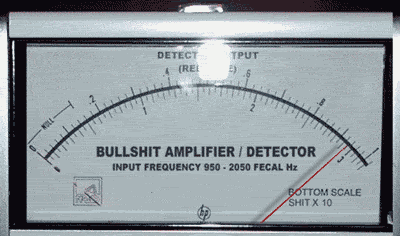According to
US Government's Assessment, Assad has used chemical weapons against his own people in the civil war there. Syria and its allies have challenged this assertion, with
Assad challenging the West to produce a single piece of evidence that proves the government forces guilty. However, the part that I believe is most pertinent to us as inhabitants of America is Obama's declaration that the impending vote by Congress
would be nonbinding.

Does this signal a changing socio-political context under which the Constitution is interpreted? In Libya,
Obama had engaged in a bombing campaign without congressional approval in violation of the War Powers Act, and in Syria, the president seeks once more to engage in a bombing campaign - this time having already
declared this action wholly within his "constitutional powers" as president. Kerry has characterized the action as a "military intervention" and therefore not a war - a form of legal word-wrangling we are all too familiar with. Obama himself has called the planned strikes
limited and proportional. Like that time we went into Iraq and killed more than 100,000 people because we had "strong evidence" that Hussein had WMDs. Or that time when we sent in 30 or so UAVs into Pakistan and killed a couple thousand people in airstrikes, including U.S. citizens. Actually, there was never a war in Pakistan - at least not as far as Congress is concerned. Nor was there ever a war in Libya. Oh, and we never went to war in Yugoslavia. Not in Nicaragua either, when Congress barred the executive from interfering.
 |
| Casualties related to the Iraq/Afghanistan Wars, as per the DemocraticUnderground |
So, would entering Syria constitute a war? Does the president have to obtain congressional approval before he goes in? Can he ignore Congress if it votes against him?


2 comments:
To address Nathan’s first question, no, attacking Syria would not constitute war…. Yet. As we have established, Obama should not have the power to start a war with Syria unless he receives the approval and support of Congress. This seems unlikely, given that entering Syria has received little popular support and has caused a bit of divide among both Republicans and Democrats. However, Obama’s persistence concerns me. While he claims that the attacks would be “limited and proportional,” they would still draw the United States into a more serious conflict. The size of our preliminary involvement isn't what matters, it’s the fact that we are involved at all. Everything changes when the United States is in a state of emergency or is facing a direct threat of attack, including the willingness of Congress to declare war.
I agree with Annika's point regarding the definition of war. To most people, entering Syria would definitely constitute a war. However, because of the multitude of previous instances in which the president acted without congressional approval (Korea, Vietnam, Grenada), it has become an assumption that the president will not, and does not need congressional approval. Even Obama avoided this check of power with the Libya bombing campaign two years ago. If Obama continued to follow this path, Syria would not be considered a “war” under the Constitution. Surprisingly, this time Obama has decided to seek congressional approval. Nevertheless, even if Congress votes no to action in Syria, Obama can still decide to enact his plan anyway, ignoring Congress. This would set a continued dangerous precedent, whereas obeying Congress’ decision would increase the chance future presidents would seek congressional approval instead of directly taking action.
Post a Comment